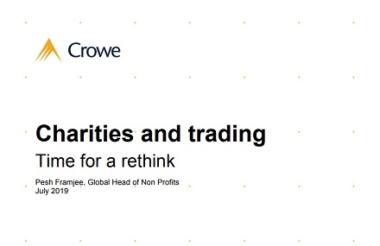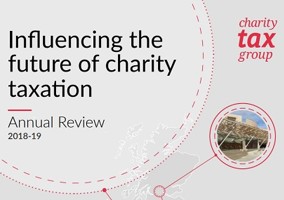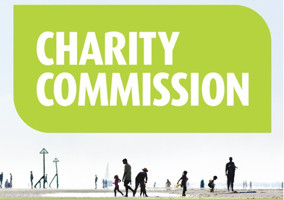Sector umbrella bodies have called for a change to the UK’s tax regime to allow charities to undertake all trading without having to set up a subsidiary company.
Acevo and the Charity Finance Group have put their names to a paper written by accountancy firm Crowe, which says that the change could alleviate burdens on charities and HM Revenue & Customs.
The report says current tax rules mean that many of charities’ normal fundraising activities are treated as eligible for a tax liability.
However, in practice, many charities put these activities through a trading subsidiary and then Gift Aid their profits back to parent charity.
This means that HMRC does not collect tax for these activities but charities do have to pay increased costs such as professional fees for lawyers and accountants to help them navigate the complex arrangement.
Pesh Framjee, global head of non-profits at Crowe, said in a preface to the report: “The recommendation for change is to allow charities to undertake all trading within the charity, without the need for a trading company.
“In effect, extending the exemption that allows charities to carry out primary purpose trades to all trades.
“A compromise would be to remove the fixed monetary caps and allow charities to trade if their trading income did not exceed 25 per cent of all their income.
“This proposal is for an option not to use a trading company, rather than preventing the use of one, so charities could and should continue to use a subsidiary trading company when the situation merited it.”
‘Few draw backs’
In a joint forward to the report, Acevo chief executive Vicky Browning and CFG chief executive Caron Bradshaw say: “Having to set up trading subsidiaries for fundraising activities that do not involve significant risk simply because of tax risk is money and time that could be better spent, without adverse effect on the public finances.
“The ideas contained in this paper have much to commend them and few, if any, noticeable draw backs.
“Acevo and CFG have always been in favour of reducing unnecessary burdens on charities, yet often critics will complain that charities are looking for handouts or special treatment.
“These proposals could alleviate the burden not just on charities but also HMRC, which currently has to process tax returns for which there is invariably no benefit or income to the public purse.”
Framjee told Civil Society News that he was not concerned that the report's recommendations could potentially lead to less work for charity accountants such as himself.
He said: "Where it is a wasteful bureaucratic exercise, I don't want any charities to spend money with me."
Framjee said the report's recommendations have been discussed with NCVO's Charity Tax Commission, on which he sits, but that the changes suggested here are broader than what is likely to be included in the Commission's upcoming final report.
|
Related articles












